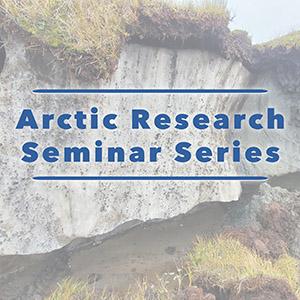Speaker: Alec Bennett, University of Alaska Fairbanks

ARCUS invites registration for the next Arctic Research Seminar featuring Alec Bennett, University of Alaska Fairbanks, titled "Arctic Sea Ice Decline and Geoengineering Solutions: Cascading Security and Ethical Considerations". The seminar will be held via Zoom.
Registration is required for this event. Instructions for accessing the webinar will be sent to registrants prior to the event.
Seminar Abstract
Climate change poses sufficient risk for nation-states and residents throughout the Arctic to warrant potentially radical geoengineering solutions. Current geoengineering solutions are in the early stages of testing and development. Due to the scale of deployments necessary to enact substantial change, and their preliminary nature, these methods are likely to result in unforeseen consequences. The Arctic is an area that is experiencing rapid change, increased development, and exploratory interest, and proposed solutions have the potential to produce new risks to both natural and human systems. This talk explores potential security and ethical considerations of geoengineering solutions in the Arctic and the need for proactive and preemptive frameworks at the international level, while leveraging unique structures already present in Arctic governance.
Speaker Bio
Alec Bennett is a faculty member at the University of Alaska Fairbanks, where he teaches Climate Security coursework in the College of Business and Security Management, focusing on a mixture of computational and socio-political approaches to security. Alec is co-affiliated with the International Arctic Research Center, where he works on interdisciplinary research exploring the intersection between computational modeling, climate-driven extreme events, and security, from a range of perspectives. He is also a member of the Center for Arctic Security & Resilience, and helps to develop tools and frameworks toward translating Arctic research into actionable mechanisms for communities and organizations trying to plan for an uncertain future in the Arctic.
